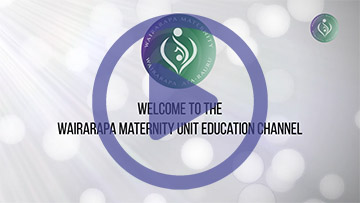![]()
Hāpu
(Pregnancy)

Blood Tests
When you first see your LMC you will be asked to give a blood sample to test for:
- your blood group
- iron content in your blood
- any harmful antibodies
- immunity to rubella
- hepatitis B
- syphilis
You will also be offered Antenatal HIV Screening.
Where can i get a blood test done?
Blood tests are usually done at Medlab in the Wairarapa, you can choose where you get the test done.
Wairarapa Hospital 06 946 9836
Masterton Medical 06 370 0595
Carterton 06 379 8683
Greytown 06 304 7068
Featherston 06 308 9220
Martinborough 06 306 9501
Blood tests are free for New Zealand residents.
Ultrasounds
There are times in the pregnancy where an ultrasound scan may be requested.
This is sometimes done:
- as part of the Maternal Serum Screening First Trimester Combined test
- at around 20 weeks to check your baby’s physical features such as heart, lungs, brain, spine, etc
- if it is medically required (such as checking your baby’s growth)
Where can i get my ultrasounds done?
Te Ore Ore Road
Masterton
5 Park Street, Masterton
Wairarapa
Note: There is a small cost involved
Hutt Valley and Wellington Clinics
Note: There may be a charge - check their website beforehand
For clinic locations see their website
Five Rivers Medical Centre
Greytown
Immunisation
Immunisation for Influenza and Whooping Cough during pregnancy can protect the woman, her unborn baby and her newborn.
Influenza vaccine can be given during any stage in pregnancy, and is free from 1st April to 31st December each year. Whooping cough vaccine can be given between 13 to 38 weeks. Both vaccines are recommended and free for every pregnancy.
For more information please contact your medical centre, or visit the Immunisation Advisory Centre website
Alcohol
When you are pregnant if you drink alcohol it will be carried to your baby through your bloodstream. Drinking during pregnancy increases the risk of problems for your baby including learning disorders, and behavioural or social problems. You should avoid alcohol if you're planning to get pregnant.
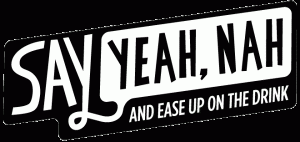
Smoking
Smoking during pregnancy is linked to health risks for both the mother and the baby. It is better to stop smoking before you get pregnant but even quitting while you are pregnant will help. It’s okay for pregnant and breastfeeding women to use nicotine patches, gum and/or lozenges.

Information on how to quit smoking is in The Quit Book.
Support is also available from:
Quitline 0800 778 778
Whaiora 06 370 0818
Linda Spence Wairarapa Smokefree Coordinator 0276294302
Hapu Mama
Is a quit smoking programme for wahine hapu (Pregnant women) and their support people. It is formed as a 12 week rewards programme, gift vouchers are offered as an incentive to stay smokefree and are given as rewards when certain milestones are achieved. You and your named support people can enrol through your LMC, or phone 0800 494246.
Drugs
Info pending
Once you have confirmed you are pregnant the first thing you need to do is find a Lead Maternity Carer (LMC). Ideally, see them before you are 10 weeks pregnant so they can arrange the tests you may need during your pregnancy.
Lead Maternity Carer (LMC)
Your LMC will be responsible for your care throughout your pregnancy, birth and for up to 4-6 weeks after your baby is born.
What does a LMC do?
Your LMC will make sure you get the care you need including assistance for managing medical conditions. They will provide any forms you need for blood tests and an ultrasound scan.
Your LMC will see you regularly during your pregnancy. They will provide care and refer you to specialists for any tests or treatments needed.
They will help you develop a care plan that includes the choices you need to make during your pregnancy, labour and birth - and after your baby is born. (This can be updated throughout your pregnancy). They are available during business hours to provide advice and provide emergency care 24/7.
They will attend your labour and the birth of your baby. They will also arrange backup support in case they are unavailable. Your LMC will make sure you have postnatal care visits while you are in hospital and during the 4-6 weeks after you give birth.
Home Birth Options
Not all LMCs offer home birth. If you are interested in having your baby at home ask the LMC if they provide this service.
For more information on Home Birth see http://www.homebirth.org.nz/.
LMC options in the Wairarapa
For contact details for Wairarapa-based LMC midwives and to check their availability click the image below
Please Note: GPs do not offer LMC maternity services in the Wairarapa
COVID 19: Information for pregnant people https://www.health.govt.nz/our-work/diseases-and-conditions/covid-19-novel-coronavirus/covid-19-information-specific-audiences/covid-19-information-pregnant-women-and-those-who-have-recently-given-birth#facilities
Covid vaccination in pregnancy https://www.midwife.org.nz/women/covid-vaccination-in-pregnancy/
Wairarapa DHB http://www.wairarapa.dhb.org.nz/news-and-publications/covid-19/
When: Thursdays, 6.30-8.30pm. Doors open at 6.15pm
Where: Ground Floor- Board Room- Clinical Services & Support Block (map link sent out on registration)
Who this is for: Pregnant women/ people enrol after 28 weeks of pregnancy
+ One named support person may attend also.
Useful Information: Light snacks (fruit) provided but please eat dinner before you come or after the session. Bring a water bottle if you can. J
Midwife Facilitator: Bronnie. Contact via email: PregnancyEducationWrDHB@wairarapa.dhb.org.nz
Session one: Healthy pregnancy session
-Pregnancy health and wellbeing check in (‘Te whare tapa whā framework) and also cover in simple terms the anatomy and physiology of the female body in relation to pregnancy and some relevant topics (abbreviated revision from Early pregnancy session as only 2 hour session
-Maternity Care- role of LMC or Team Midwife in clinics and Doctors/ routine tests/ your rights and responsibilities/ changes in pregnancy what’s normal what’s not in pregnancy/
-What needs to be an urgent call? / What is non-urgent and can be texted to the midwife
-Informed decision making and consent-what this means.
Session two: Preparing for labour and birth
- Signs and stages of normal labour –what is the road map of normal physiological birth?
- Hormones- a brief overview of the part they play
- Role of support people/ what to bring to hospital/ comfort measures in the last trimester of pregnancy and for managing labour pain/ brief overview of optimal positioning
- Role of the midwife.
-Natural and pharmacological pain relief overview
-Birth video-normal birth (a series of stills) at end of session (optional)
Session three: When the unexpected happens in pregnancy or labour
-Interventions in labour and birth- I go through some different scenarios like Induction of labour, assisted delivery and caesarean birth. I also cover change of birthplace and change of carer which can occur when maternity level of care changes from primary to secondary care.
-Maternity ward tour is planned during this class if possible otherwise there is a link given for the Virtual tour of the Unit.
Session Four: - Healthy Babies and families session -Pēpi Ora
- Early days with a new-born what’s normal? Includes overview of routine screening and or routine treatments/ plus some less common screens and tests for baby
- Role of support –the key players / preparation before the birth what needs to be sorted?
- Overview/ Discussion re Perinatal Mental health and supports available
- Hands on: baby bath; safe sleep; wrapping and settling baby; nappies & clothes; infant CPR demo
- Overview of some community supports and follow up care after the midwife finishes at 4-6 weeks.
-Guest speaker-Luke Tiller (Kids Need Dads) maybe present this week or week five, dependant on availability.
Session Five- Breastfeeding – Wai ū
-All the best information in one place with comfortable environment to learn and our lovely Lactation Consultant Julie Foley. A chance for some practical hands on practice with life like babies and knitted boobs. Overview of some community supports e.g. for breastfeeding/ baby wearing.
-Guest speaker if not present at week prior.
Service name: P.O.P.S Pēpe Ora Parenting Support
Contact phone: 027 3480 464
Address: Hau Kāinga, 15 Queen Street Masterton
Service Area Coverage: Wairarapa
Cost: Free
Business Hours: Every Wednesday during school terms, 10am – 12pm
Website: pepeora.nz
Provides antenatal support for hapū māmā and pēpi, you can bring along whānau/friends for support. This is a safe and supportive environment to ask questions and connect with other pregnant mums, our local Pregnancy & Parenting midwife Educator, supported by our Kaiawhina. All are welcome
, kai is provided.
March 23 rd
10- 2pm
Hau Kainga
Morning tea and lunch provided
Taonga/gift for hapū māmā and pēpe
Wairarapa District
All hapū māmā, partners and support people welcome
1.Date of referral*
2. First Name*
3. Last Name*
4. Due date of birth*
5. Your contact number/s*
6. Your email*
7. Lead Maternity Carer (LMC) e.g Midwives Team,
8. Do you require transport
9. Any dietary requirements we need to know about
10. No. of the pregnancy eg 1 st , 7 th
11. Support person(s) attending to support you
12. How did you hear about our Hapū Māmā Early Pregnancy Programme
Please register with Linda.spence@tuora.org.nz
Cell - 0276294302
Parent Centre also provides antenatal education and parenting classes.
Service name: The Ruth Project
Contact phone: 027 778 8022
Email: office@theruthprojectwai.onmicrosoft.com
Referral process: Self-referral
Service Area Coverage: Wairarapa wide
Cost: Free
Website: https://www.facebook.com/theruthprojectwai/?ref=page_internal/
Information: A service for families struggling with mental health before, during and after child birth. Supporting women suffering from perinatal depression, their partners, their children and their whanau, regardless of age, and offers additional support between clinical appointments. We offer one to one mentoring, an online support group and weekly coffee groups on Wednesdays, check online for times and locations
Service name: Specialist Maternal Mental Health Wairarapa Consult-Liaison Service
Contact phone: 0800 946 9800
Address: Wairarapa Hospital, Te Ore Ore Road, Masterton
Referral process: If you are pregnant or have a baby up to 12 months with a mental health concern, you can ask a health professional to contact Maternal Mental Health for advice and support. Your LMC or midwife can refer you to the Wahine Wellness Clinic which runs monthly at the Wairarapa Maternity unit. You will need a prior arranged appointment.
Urgent or crisis calls must be made to 0508 432432
Information: Our clinician offers support and advice to birth parents, their infants and whānau, who require mental health support.
Service Area Coverage: Wairarapa wide
Cost: Free
Business Hours: Limited to 2 days a week by appointment and arrangement.
Website: www.mhaids.health.nz
The link below shares the emotional changes that occur with pregnancy and having a newborn, what is normal and some common concerns https://pada.nz/
https://brainwave.org.nz/article/circle-of-security/
A miscarriage is a pregnancy that ends on its own within the first 20 weeks of pregnancy. Most miscarriages (more than 95%) occur in the first 12 to 14 weeks of pregnancy (1st trimester).
Miscarriage affects approximately 1 in every 4 women. A miscarriage may start and complete naturally or it may be discovered (often by scan) that the pēpi has died and the pregnancy has stopped but the pēpi is yet to pass from the woman’s body.
Symptoms of miscarriage:
The symptoms experienced will depend on the cause of the miscarriage and how advanced the pregnancy is/was so may take hours, days or even weeks to complete. These may include
- Vaginal bleeding, which varies from light spotting to heavy bleeding
- Fluid, blood clots or tissue passing from the vagina
- Abdominal pain or cramping
- Lower back pain
- Fever and chills (these may indicate infection)
The process of a miscarriage is individual to each woman. Bleeding during early pregnancy with some cramping is not necessarily a sign that you are miscarrying. Less than half the cases of bleeding, or ‘threatened miscarriages’ go on to actual miscarriages.
In general, the heavier the bleeding and the more severe the pain and cramping, the more likely that there may be a miscarrage occuring. In some cases the miscarriage is spontaneous and complete and no further treatment will be required. In others there may be tests required, such as blood tests and an ultrasound scan, to see whether the miscarriage is complete or whether there is the need for medical treatment or a procedure known as evacuation of retained products of conception (ERPOC), also known as a dilation and curettage (D & C). These options will be discussed on an individual basis dependant on the situation.
What to do if you are concerned that you may be starting to miscarry or you are having any vaginal bleeding and/or pain.
Contact either
- Your lead maternity carer midwife (if you have registered with one)
- Or your general practitioner
- Or go to the emergency department at the local hospital if your bleeding is heavy (soaking pads) and/or passing blood clots and/or having pain.
- If you require hospital care you will be cared for by the hospital team. At Wairarapa DHB we offer small Ipu Taonga for your precious one to be returned to the whenua (land) if you wish to do this.
If you do experience a miscarriage then
- Rest as much as you can, especially in the first few days. Share what you are going through with others as this is important support. You are entitled to take some time off work.
- Use sanitary pads instead of tampons, and avoid sex (or use a condom) while you are still bleeding. This reduces the risk of infection.
- If the miscarriage is complete, you can expect the bleeding to taper off rapidly, i.e. over the next week it should get lighter and lighter and stop.
It is normal for people to feel emotional and physical symptoms of grief following a miscarriage. It is important to give yourself time to recover from the physical process of miscarriage, to acknowledge your feelings and to understand what has happened. The following website may help with further information during this time
Hōkai Tahi is a support service that helps to equip women in the Wairarapa community through all aspects of their pregnancy journey, by giving them the space, time and resources to make informed decisions regarding their pregnancy, or to process the grief related to baby loss or termination, and come to a place of forgiveness and hope. https://hokaitahi.nz/
Check out Health Navigator: an excellent source of information on health topics and early pregnancy questions you may have plus more: https://www.healthnavigator.org.nz/health-a-z/p/pregnancy-screening-tests-and-checks/
Healthy Kai and drink choices: link to download a digital booklet for yourself or scroll down the page for more info online including food safety advice: https://www.healthed.govt.nz/resource/eating-healthy-pregnant-women
Nutrient information for a healthy pregnancy: https://www.healthnavigator.org.nz/healthy-living/s/supplements-pregnancy/
Affordable healthy kai food ideas/ recipes can be found at these websites: 5+aday.co.nz ; www.vegetables.co.nz ; https://www.heartfoundation.org.nz/wellbeing/healthy-recipes
Fruit and Vege Co-op info: https://www.facebook.com/wairarapafruitandvegecoop/
Local Foodbanks information: https://www.foodbank.co.nz/mastertonfoodbank
Healthy activity advice: keep it simple a little every day or atleast 5 days a week of something you enjoy- walking, being in water, dancing, yoga; https://www.healthed.govt.nz/resource/eating-healthy-pregnant-women
Did you know that you can self-refer to the Green Prescription programme while pregnant or as a new mum for nutrition and healthy lifestyle support? Link to self-refer: https://www.sportwellington.org.nz/active-health-and-wellness/green-prescription/
Link to local yoga provider for pregnancy classes: https://www.karinaflowyoga.com/class-schedule
Link to Trust House pool for aqua activity while pregnant: https://www.sportwellington.org.nz/active-health-and-wellness/green-prescription/ Did you know that summer pools in Greytown/ Martinborough / Carterton and Featherston are free Between Labour weekend and Easter?
If you’re are a teen and pregnant call the principal at the Teen Parent Unit at Makoura college as you are welcome to join in with their antenatal education classes at Makoura college and maybe if you wanted get some NZCEA credits too: http://www.mc.school.nz/learn/teen-parent-unit
Women’s’ Centre Masterton- https://www.facebook.com/Wairarapa-Womens-Centre-141256559335827/
Community Centres and Church groups often run pre-school play groups and encourage mums to come whenever they want even with a little babies if they want the company- ask your well child provider for more information as she will know a lot about what’s happening in her area for parents of 0-5 year old children.
Family Start programmes run by Whaiora –check their page out and if it seems like the support you might really benefit from, ask your GP/ or midwife to refer you or after baby is born ask your well child provider: https://whaiora.org.nz/content/family-start:
Online Facebook groups and web pages for mums and or dads e.g:
Wairarapa Mums: https://www.facebook.com/groups/713050005484695/
Local community pages for your suburb/ town are common on Facebook or look out for information at your local library and community centre
Gestational Diabetes NZ: an online forum of mums supporting mums https://www.facebook.com/groups/1740126849597193
Men’s Group Wairarapa: a new group based in Carterton https://www.eventfinda.co.nz/2020/mens-group-wairarapa-monthly-indoor-meeting/carterton
Great fathers Trust: some great little videos and tips for dads like the tool box http://www.greatfathers.org.nz/greatfathers
https://www.kidzneeddadz.org.nz/wellington/
Also, there is the Ruth project which you can get in touch with for home help support: https://www.facebook.com/theruthprojectwai/
Hokai Tahi (formerly Crisis Pregnancy Support): FREE services that we provide: crisis pregnancy support, practical pregnancy support, baby loss support, post termination counselling.
Our service exists to support women and their whānau facing an unexpected pregnancy or baby loss, in any circumstance or at any gestation. Hōkai Tahi offers an accessible, clinically based, community focused service that supports the individual, whānau, community and the primary healthcare network within the Wairarapa. Our Support Coordinators are all registered health professionals and counsellors who maintain professional, confidential standards. We accept self-referrals as well as referrals by family members, friends and other professionals. Please note that all referrals must be consented to. To refer, please free phone us or send us an email. If you prefer to fill out a referral form, this can be found on our website.
We are here to listen and to give you a safe, non-judgemental space to share. Our support is based on a Māori healthcare framework and will be sustained for as long as you need it.
21 Worksop Road, Masterton 5810
0800 006 277 | info@hokaitahi.nz
facebook.com/hokaitahi | www.hokaitahi.nz
8.30am - 4pm Mon – Fri (by appointment only)
![]()
Birth
If you have your own midwife lead maternity carer, they may arrange to assess you at home when labour is starting or to meet in the maternity unit. If you have chosen your care to be provided by the hospital, our team of midwives will look after you. We also have a team of hospital opstetricians and anesthetists should you need them.
You may have had an opportunity to visit the maternity unit with pregnancy and parenting classes or your midwife, if you haven’t had a look around feel free to view the virtual tour of our unit.
.
When should I call my midwife or the maternity unit?
If you are booked under the hospital please call us on 06 9469815 if you think you are in labour or if any of the following happen:
- Your contractions are coming every five minutes, lasting longer than 50 seconds and have been getting stronger for at least two to three hours.
- You have severe or constant abdominal pain with a tight abdomen.
- Your water has broken and it is clear or has a tinge of pink. Put on a sanitary pad and check it after an hour. If it is wet, please ring us.
- Your water has broken and it is green or brown. Call us immediately - you will be advised to come into hospital.
- If there is a change in the pattern of your baby's movements..
- You notice any vaginal bleeding - bright red vaginal bleeding is not normal
For more information on Home Birth see

Plans
Plan for your home birth by considering what you need. Wairarapa Maternity Unit offers a birthing pool hire option. These are inflatable in a matter of minutes, easy to fill and empty. They come with a disposable liner.Pool Booking
If you need to book a pool for use at home. Use our online booking form and to check availability. The cost is $150 and they can be booked out for one week.
Around 500 babies are born at Wairarapa Hospital every year. Lead Maternity Carers use our facility for hospital births and we have a hospital-based team made up of midwives, nurses, obstetricians, paediatricians and anaesthetists. Some hāpu māmā may have medical health issues or develop pregnancy complications, which means they may need to see the obstetrician during pregnancy in clinic.
If māmā or pēpe need an obstetrician or paediatrician urgently or during their stay, they are either on site or available within a short time frame 24/7.
If you have opted to birth your baby in the hospital you do not need to “book in”.
Your LMC will make arrangements with the hospital on your behalf.
Take a virtual tour of our unit
The maternity ward has 6 single rooms, 2 share a bathroom.

 Tūranga Matua birthing suite
Tūranga Matua birthing suite
Our services include a Birthing Suite, Maternity Ward, Obstetric Clinic. The Special Care Baby Unit is next to Maternity Ward.
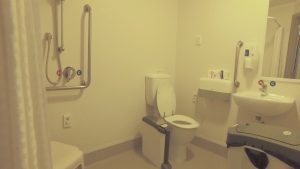
Our midwives operate in shifts, so you will be looked after by more than one midwife when you have had your baby.
We do not have a ‘nursery’: your baby stays with you to help breastfeeding and to let you get to know each other.
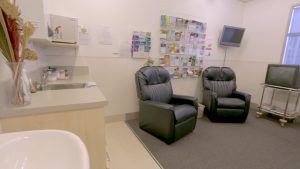
Where do I go?
You can get to the Birthing Suite through the main entrance from 6.30am to 8.30pm. Outside those hours please enter through the Maternity Door at side of hospital or through the Emergency Department.
If you need to contact the Wairarapa Hospital Birthing Suite urgently call 06 946 9815 or dial 111 in an Emergency.
The Māori tradition of burying the whenua (placenta) in the land is now a practice followed by many cultures that live in Aotearoa. For Māori the link between the whenua as in placenta and the whenua as in land is that they both provide sustenance for humans to grow from. The placenta is the main source of growth for the pēpi (baby) and the land grows people to contribute to society.
Wairarapa Maternity is committed to supporting whānau / families with this tradition and offer ipu whenua as a gift on the birth of their pēpi if they have not already made or been gifted their own. Please let your midwife know if you would like one.

Whānau will have strong connections to the land in which they wish to bury their whenua. For some they may not have that resting place and the Masterton District Council has dedicated an area at Henley Lake called the whenua garden where they have a burial once a year for those wishing to participate.
![]()
Pēpe & Māmā
(Baby & Mum)
Breast milk is the best food for your baby.
Lactation Consultants can help with breastfeeding difficulties that cannot be solved by your LMC.
The Wairarapa DHB Hospital provides a free Lactation Consultant service.
There are a number of other organisations in the Wairarapa region which provide support with breastfeeding.
Many are free of charge, such as Breastfriends for mum-to-mum breastfeeding support

Follow Breastfriends on Facebook.
Download a list of Parent Support Services
Alcohol and breastfeeding
If you drink alcohol while breastfeeding it will be passed to your child and may affect the baby’s growth and development.
Breast milk is the best, safest and most nutritious food for babies. The best advice is to avoid alcohol while breastfeeding, for the first few weeks. Remember that if you have one standard drink it takes up to two hours to for your body to process the alcohol in it.
Baby Friendly Hospital
Wairarapa Hospital has been accredited by the NZ Breastfeeding Authority (NZBA) as part of the Baby Friendly Hospital Initiative (BFHI).This means we are required to support new mothers feeding their babies, regardless of their choice. For those wishing to breastfeed we follow the Ten Step principles of the Baby Friendly Hospital Initiative.
For more information on the initiative visit
Immunisations work by making your baby’s immune system respond to the vaccine the same way it would to these diseases, but without the serious effects of the actual diseases.
Vaccinations during pregnancy are important for the wellbeing and protection of māmā and pēpe. Follow this link for more information and videos on the benefits of vaccinations in pregnancy.
Immunisations are offered free from your GP doctor. They help protect against 11 serious diseases.
Ask Plunket staff or your doctor for an immunisation schedule if you do not have one. The first immunisations are usually given when your baby is 6 weeks old, then at 3, 5 and 15 months and 4 years. Having all the immunisations is important for the best chance of strong protection.
For more information see
or the Ministry of Health website
Up to 60 babies die from Sudden Unexpected Death in Infancy (or ‘SUDI’) in New Zealand each year. This includes both explained and unexplained deaths. Common causes include suffocation by bedding or by an adult or child who is sleeping with the baby.
To protect your baby:
- Make sure they sleep on their back (with their face up)
- Make sure bedding and pillows are kept away from your baby’s face as they sleep
- Make sure there are no gaps between the cot and their mattress
- Don’t smoke - and make sure others don’t smoke around baby
It’s safest not to sleep in the same bed as your baby. Keep them in a cot, bassinette, wahakura or pepipod and sleep in the same room. Your midwife will check where you baby will sleep and give you advice when they visit.
For more information see the HealthEd website
Wairarapa DHB supports all pepe having their own sleep space and so offer pepi pods to anyone that does not have a bassinette or cot, Maori, Pacifika, smokers or those that may choose to bed share. Your midwife can request this and it can be collected from the maternity unit.
http://hapai.co.nz/national-sudi-prevention-coordination-service
Your LMC midwife will provide you with information and discuss the free services available to you before your baby is born.
These services include:
GP services- provide free healthcare to children under 6yrs.
Well Child - will support you to ensure your child grows to their full potentail.
Hearing screening- your baby will be offered a safe, simple hearing check.
National Immunisataion Register- this register records the immunisation of all children living in New Zealand
BCG- Tuberculosis (TB) is a highly infectious disease that mainly affects the lungs, your baby will be referred to BCG services if there is a high risk of them getting the infection
Oral Health- dental services will contact you confirming enrolment and contact you when their first visit is due.
Birth Registration
Every birth in New Zealand must be registered by law. It's free to register your baby, but there's a charge if you want to order a birth certificate. Visit Smartstart to register online.Check out Little Shadow a group for families experiencing distress in pregnancy or post baby’s arrival: https://www.littleshadow.org.nz/
Also, there is the Ruth project which you can get in touch with for home help support: https://www.facebook.com/theruthprojectwai/
Need help to get safe or to make a safety plan: https://wairarapawomensrefuge.org.nz/
She is not your Rehab: https://www.sheisnotyourrehab.com/about
Family Works: https://familyworkscentral.org.nz/help-centre/
Please also check the Support Tab in the Hāpu section of this website for a comprehensive list of resources including for dads.
![]()
Information
Pēpe Ora provides information to help you find the right services for you and your baby in the Wairarapa, from pregnancy to before school.
SmartStart provides step-by-step information and support to help you access the right services for you and your baby.
The Well Child Tamariki Ora team works with families and whānau to help give children/tamariki aged 0-3 years the very best start in life
